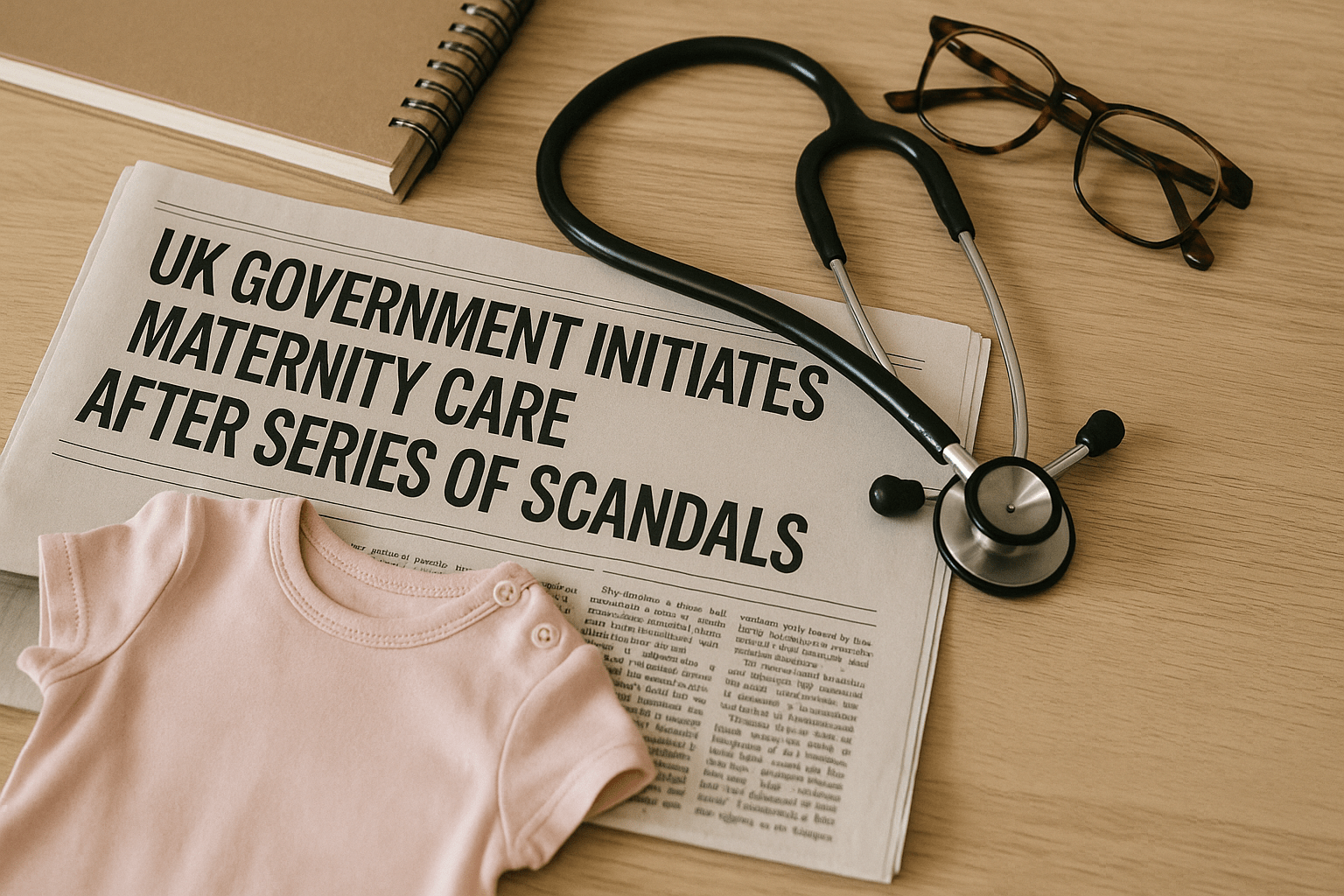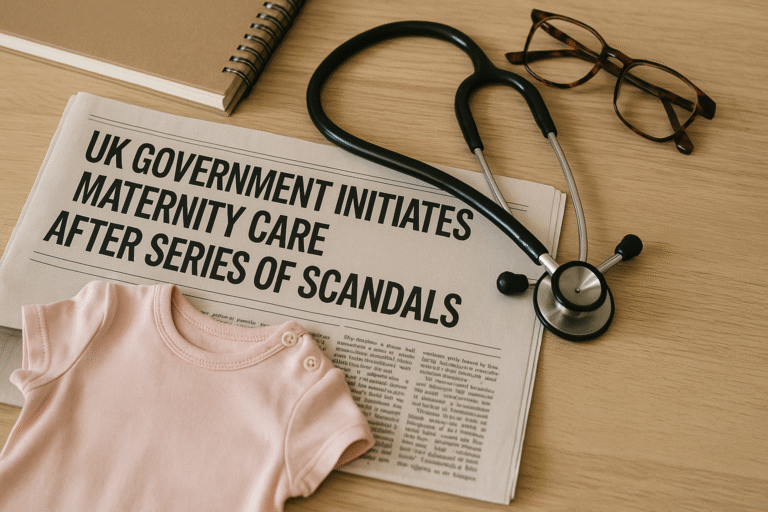
The UK government has recently launched a comprehensive investigation into maternity care services following a series of scandals that have raised serious concerns about the safety and quality of care provided to mothers and their newborns. This initiative comes amidst growing public outcry and mounting evidence suggesting systemic failures at multiple levels within the National Health Service (NHS).
### Background of the Investigation
The decision to initiate this investigation was primarily catalyzed by reports from several NHS trusts that highlighted serious lapses in care, leading to avoidable deaths and long-term harm to mothers and babies. Notable among these has been the heart-wrenching accounts from families affected by the failures at the Shrewsbury and Telford Hospital NHS Trust, which painted a grim picture of neglect and inadequate response from healthcare providers.
The Shrewsbury and Telford scandal, now infamous, revealed over a decade-long period of systemic neglect where more than 1,800 cases, involving stillbirths, neonatal deaths, and brain-damaged infants, were reviewed. Such revelations have significantly eroded public trust and prompted immediate government action.
### Objectives of the Investigation
The government’s primary objective through this investigation is to ensure that mothers and their infants receive the highest standard of care possible. Health Secretary has emphasized the need for a transparent investigation that not only identifies the root causes of these failures but also provides actionable recommendations to prevent future occurrences.
Key focus areas of the inquiry include:
1. **Clinical Competence and Accountability**: Assessing the competency and accountability of clinical staff involved in maternity care. This includes evaluating their adherence to established medical guidelines and protocols.
2. **Organizational Culture**: Investigating the systemic issues such as communication breakdowns, hierarchical barriers, and resource allocation that may have contributed to these failures.
3. **Family Support**: Understanding how effectively families are being supported through their maternity journey, particularly when things go wrong. This involves examining how complaints and concerns are addressed by healthcare facilities.
4. **Patient Safety and Reporting Systems**: Analyzing the effectiveness of existing safety protocols and reporting systems meant to catch and mitigate risks before they lead to harm.
### Implications for Healthcare Policy
This probe into maternity services could have far-reaching implications for healthcare policy in the UK. One of the anticipated outcomes is a revamp of maternity health guidelines and stricter regulatory oversight. The investigation could also lead to the establishment of more robust training programs for healthcare professionals, ensuring that all staff are adequately equipped to handle diverse and complex childbirth scenarios.
Moreover, the cultural shift within NHS institutions towards greater transparency and patient-centered care is likely to be emphasized. This would mean more comprehensive engagement with patients and their families, prioritizing their voices and experiences in shaping maternity services.
### The Role of Midwives and Healthcare Professionals
Midwives and healthcare professionals are at the frontline of maternity care, and this investigation sheds light on the critical role they play. There will likely be a closer examination of midwifery practices and the support systems in place for midwives to carry out their duties effectively. This includes looking at staffing levels, workloads, and access to ongoing professional development.
Healthcare professionals may also anticipate changes in how their performances are assessed and how feedback from patients is incorporated into improving care delivery. There is a push for a more holistic approach to performance evaluation that goes beyond just clinical outcomes to include patient satisfaction and experience.
### Challenges in Implementing Change
Implementing the changes recommended by this investigation will present its own set of challenges. Resistance to change is a common obstacle in large, established institutions like the NHS. Ensuring that recommendations lead to tangible improvements will require buy-in from all stakeholders, from policymakers to frontline healthcare workers.
Additionally, funding will be a critical factor. Enhancing training programs, improving facility infrastructures, and recruiting additional staff all necessitate substantial financial investment. The government will need to ensure that sufficient resources are allocated to implement the changes effectively, or risk the investigation becoming a fruitless endeavor.
### A Cautious Optimism
While the investigation has been welcomed by many as a necessary step towards improving maternity care, there remains a degree of skepticism. Previous inquiries into NHS practices have sometimes fallen short of enacting meaningful change, leading to doubts about the lasting impact of this latest initiative.
However, there is cautious optimism that this investigation will mark a turning point. With the heightened spotlight on maternity care, largely thanks to media attention and advocacy by affected families, there is increased pressure on the government and the NHS to deliver real change.
### Conclusion
The UK government’s investigation into maternity care services represents a crucial moment for the NHS and its stakeholders. It is an opportunity to address the deep-seated issues that have plagued maternity care and to restore public confidence in the healthcare system.
The outcomes of this investigation have the potential to redefine maternity care practices, ensuring that safety, transparency, and patient-centered care are placed at the forefront. It is a critical step towards guaranteeing that future mothers and their newborns receive the care and dignity they deserve.
As the investigation progresses, it will be important to keep the stories and voices of those affected at the center of all deliberations, ensuring that their experiences drive the improvements needed within the system. This is not only about addressing past failings but paving the way for a more resilient, compassionate, and effective maternity care framework.



